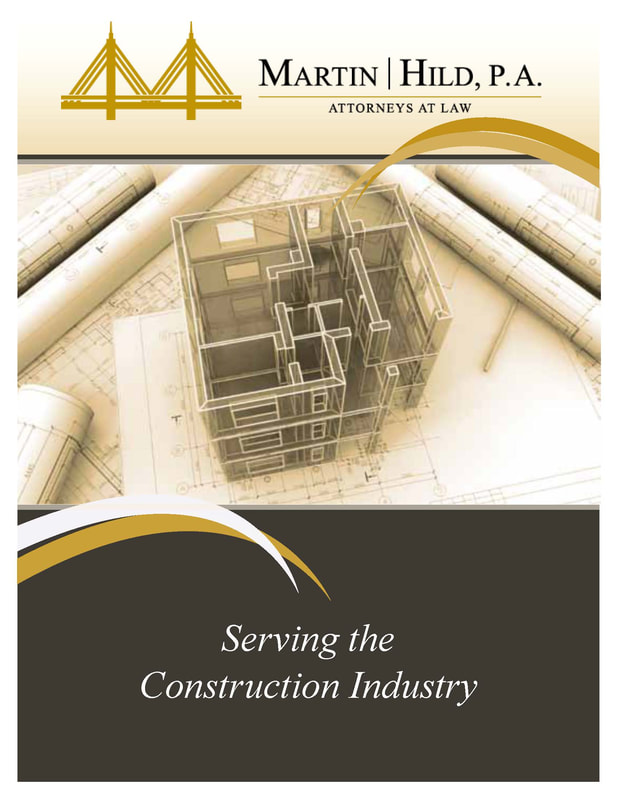The Implied Duty of Good Faith and Fair Dealing
September 23, 2014
Parties to a contract may have implied duties that are not clearly expressed in the contract. One of these implied duties, the duty of good faith and fair dealing, was recently affirmed in Metcalf 1 by the United States Court of Appeals. In that case, the court reaffirmed that event the government is required to act in good faith when performing its part of a contract. Further, the court held that the implied duty requires parties to cooperate, and to refrain from committing acts that will hinder performance of the other’s duties. For construction contracts, this generally means that the parties must refrain from committing acts or omissions that are inconsistent with the contract’s purpose or which impact the other party's performance of their end of the contract. Notably, parties can provide some definition to this implied duty by contractually specifying the notice and timing requirements for documents necessitating cooperation between the parties, such as, change orders, requests for information, and submittals.
A violation of the implied duty of good faith and fair dealing can even trump what appear to be clearly defined terms in a contract. One common term in construction contracts, “no damage for delay”, will typically prevent a contractor from suing an owner for harm caused by delays on the project. However, a “no damage for delay” clause may not be enforceable if the party seeking to enforce it does not perform the contract in good faith and impedes the other party’s performance. This can include an owner's failure to timely issue change orders or an owner creating an unreasonable delay issuing critical approvals. Thus, a party who fails to cooperate or otherwise act in good faith may not be able to hide behind terms they included in the contract to protect themselves otherwise.2
__________________________________
1. Metcalf Const. Co v. United States, 742 F.3d 984 (Fed. Cir. 2014).
2. Triple R. Paving, Inc. v. Broward Cnty., 774 So.2d 50 (Fla. Dist. Ct. App. 2000).
Parties to a contract may have implied duties that are not clearly expressed in the contract. One of these implied duties, the duty of good faith and fair dealing, was recently affirmed in Metcalf 1 by the United States Court of Appeals. In that case, the court reaffirmed that event the government is required to act in good faith when performing its part of a contract. Further, the court held that the implied duty requires parties to cooperate, and to refrain from committing acts that will hinder performance of the other’s duties. For construction contracts, this generally means that the parties must refrain from committing acts or omissions that are inconsistent with the contract’s purpose or which impact the other party's performance of their end of the contract. Notably, parties can provide some definition to this implied duty by contractually specifying the notice and timing requirements for documents necessitating cooperation between the parties, such as, change orders, requests for information, and submittals.
A violation of the implied duty of good faith and fair dealing can even trump what appear to be clearly defined terms in a contract. One common term in construction contracts, “no damage for delay”, will typically prevent a contractor from suing an owner for harm caused by delays on the project. However, a “no damage for delay” clause may not be enforceable if the party seeking to enforce it does not perform the contract in good faith and impedes the other party’s performance. This can include an owner's failure to timely issue change orders or an owner creating an unreasonable delay issuing critical approvals. Thus, a party who fails to cooperate or otherwise act in good faith may not be able to hide behind terms they included in the contract to protect themselves otherwise.2
__________________________________
1. Metcalf Const. Co v. United States, 742 F.3d 984 (Fed. Cir. 2014).
2. Triple R. Paving, Inc. v. Broward Cnty., 774 So.2d 50 (Fla. Dist. Ct. App. 2000).
What This Means For You
All contracts include implied terms and conditions such as the implied duty of good faith. A party who fails to act in good faith may be liable for damages arising out of that breach even though the term is implied.
Disclaimer: This article is for educational purposes only and is not legal advice. Seek the services of competent legal counsel to address your specific situation or issue.
Disclaimer: This article is for educational purposes only and is not legal advice. Seek the services of competent legal counsel to address your specific situation or issue.

